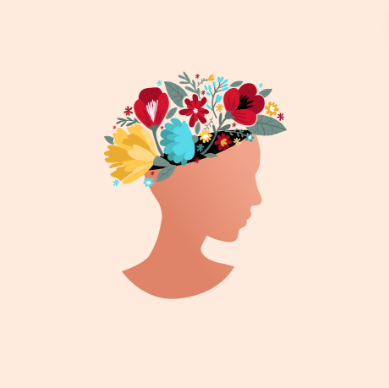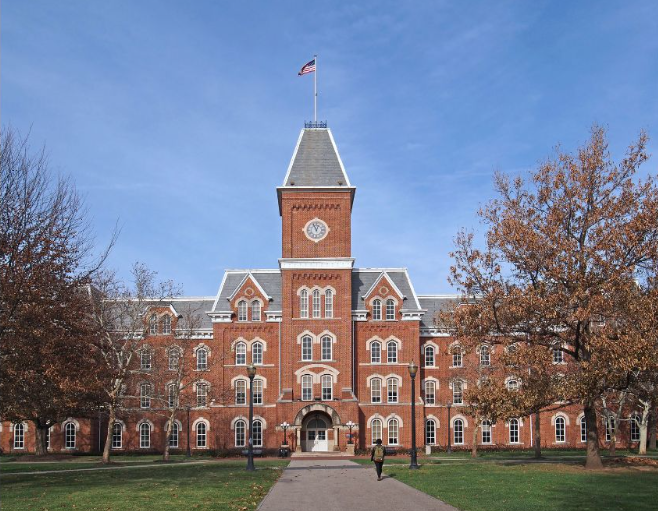
Flowers are a common gift but their presence in a person’s life can result in many positive changes and improved psychology. Flowers can play a large role in a person’s life just by being present in a room. Flowers and plants in general can affect quality of life and to a certain extent mental health concerns as well.
Plants have many benefits alongside helping our environment and air quality, including bringing happiness , especially when given as a gift. Flowers cause the people to produce chemicals like oxytocin, serotonin, and dopamine which are chemicals in the brain which lead to a better mood.
In his article, “The Power of Beautiful Flowers and Their Impact on Mental Health,” Tommy Williamson found that these “happy feelings” can last for days, making a person feel that sense of euphoria whenever they see the plant. Williamson says, “Flowers can induce positive boosting energy and vibes over you, making you feel better. The smell alone can make you feel relieved; it is a recommended solution for stress.”
Flowers and plants have been proven to help reduce stress but they can also help in regards to anxiety, depression, and other mental health concerns. Williamson reported that flowers can set a person free from anxiety, ease worries and make sad feelings fade.
Christine Capra, program manager at the Horticultural Therapy Institute in Denver states, “Even stress levels related to depression are decreased by having flowers, whether it’s in your outdoor garden or in your home or going to visit a botanic garden.”
From the colors of flowers to their scent, or just how they look can help improve sleep, color therapy can be used to help treat specific issues. Color therapy has also been used with flowers to help treat victims of trauma and to help them have a better way of life.
While gardening and having plants in a home can help with focus, memory and creativity, as found by Platt Hill Nursery, they are also used to help people of all ages with autism and ADHD. The Adult Autism Center has found that gardening helps people with autism work in a team and engage socially in a way that benefits themselves and the world around them. They also found that gardening, “encourages individuals with autism to work on their communication skills,” and can, “help them feel more comfortable with others.”
The Human-Environment Research Laboratory (HERL) at the University of Illinois conducted a study about the effect that gardening can have on people with ADHD and ADD and found that the natural green surroundings leave special education children with a better way to regulate and pay attention, and increase concentration.
Ellen Kingsley writes from her personal experience with gardening with her son who has ADHD. In Kingsley’s article “Dig In!” she writes about an experiment she conducted with her son and eight other middle school students. The group was a mix of kids with ADHD and kids without but Kingsley says that during the experiment, “no one discussed ADHD and nobody knew who had it.”
For all children gardening has proven to have long term benefits. Kingsley says, “Watering the garden every day teaches responsibility, and the anticipation of late-season blooms or growing vegetables helps kids understand delayed gratification.”
There are many flowers that can help improve mood and quality of life. According to Countryliving.com some flowers that have benefits are chrysanthemums which have been shown to help improve mood, snake plants like the laurentii can boost productivity, lisianthus encourages creativity, jasmine aids in sleep, calendulas help healing.
Team Flower Education also finds that often germaniums improve air quality, lavender improves sleep, reduces blood pressure and lowers heart rate. Roses were found to improve memory and relieve headaches, orchids have a calming effect, lily of the valley soothes nerves and can help with dizziness, and tulips can help alleviate tension and exhaustion. These are just a few ways that adding beautiful flowers to a room can help psychologically and in the long run physically.
Plants and flowers can help people in many ways and tend to lead to a better quality of life in unexpected ways. Add a pretty plant in a room, and feel the effects, making your life more colorful and happy.









Donna Christian • Apr 9, 2024 at 7:10 am
I can’t exist without my indoor garden. Extra oxygen and joy. Need to introduce more flowers as my tulips are spent. A flower that lasts longer. My African Violet is always breathtaking.